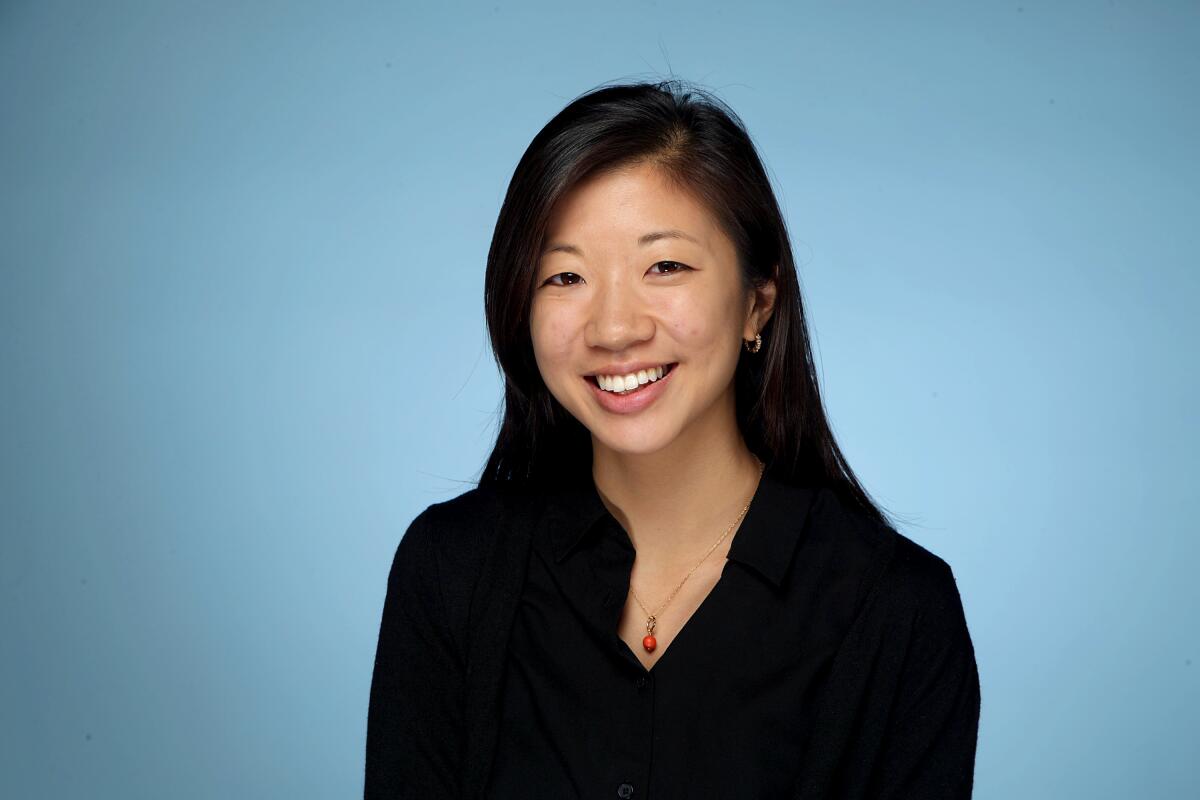Beijing Bureau Chief Alice Su Wins Osborn Elliott Prize for Excellence in Journalism

- Share via
On Tuesday, Asia Society announced that Los Angeles Times Beijing Bureau Chief Alice Su has won the 2021 Osborn Elliott Prize for Excellence in Journalism on Asia for her coverage of China during 2020.
The Osborn Elliott Prize is presented annually to the best example of journalism about Asia during the previous calendar year. It honors the late Osborn Elliott, legendary journalist, author and former editor-in-chief of Newsweek, who became one of the earliest practitioners of “civic journalism” — the deliberate focusing of the journalistic enterprise on urgent issues of public policy.
The independent jury that awards the Osborn Elliott Prize — chaired by former Washington Post and Wall Street Journal editor Marcus Brauchli — praised Su in a statement:
“Alice Su’s ambitiously conceived, deeply nuanced journalism humanized and added important new dimensions to our understanding of Xi Jinping’s China. She explained how missteps by a top-down regime dedicated to control contributed to the rapid spread of the terrifying pandemic that swept out of Wuhan. In a year of wide-ranging and difficult reporting, she showed the human cost of heavy-handed government policies, even as China’s economic power grows. She reported that Beijing’s policies of ethnic erasure no longer are limited to the Uighur homeland of Xinjiang — like Tibet, a focal point of global concern — but extend to other large minority populations, the Mongolians and the Hui. In poignant detail, Su told the story of a country where the individual, from a silenced academic to victims of floods and the pandemic, looms ever small in the face of government power. Through meticulous reporting and documentation, Su’s work paints a people in the grips of a regime that brooks little criticism, and where the drive for stability trumps all.”
Su called winning the award “a huge honor.” Last year she and her editor, Jeffrey Fleishman, talked about how to distinguish The Times’ approach to its China coverage. “We agreed that we’d focus on deeper, human-centered narratives that explain not only China’s rise and impact on the world but also how it feels to be an individual in the margins of Chinese society,” Su said. “I’m glad this prize honored that choice and affirmed the importance of individuals’ stories in a country where they are often lost or overlooked amid the big numbers and sweeping trends.”
Su and The Times will be honored at a discussion and awards ceremony held virtually on June 16 at 6 a.m. PDT. Brauchli will lead a discussion with Su on her stories, and on the challenges of reporting in China.
Su, who grew up between Hong Kong, Taiwan, Shanghai and California, studied at Princeton University and Peking University, and freelanced in the Middle East for five years before joining The Times in 2018. She won the 2014 Elizabeth Neuffer Memorial Prize from the United Nations Correspondents Association for her coverage of refugee crises in Jordan and Lebanon, and was a Livingston Award finalist in 2016 for her work on youth extremism in Jordan and Tunisia. She is also a finalist for a Society of Publishers in Asia (SOPA) 2021 Editorial Award in the “Young Journalists” category for her report on survivors of China’s internment camps in Xinjiang.
To read Su’s reporting, visit her biography page on latimes.com. To learn more about the Osborn Elliot Prize visit asiasociety.org.



